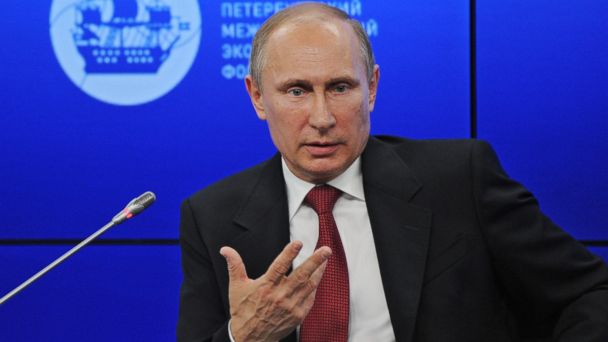US Says Russian Missile Launch 'Serious' Violation of Treaty

(Mikhail Klimentyev/RIA Novosti Kremlin/Presidential Press Service/AP Photo)
WASHINGTON - The Obama administration is publicly accusing Russia of violating a 1987 nuclear missile treaty, a declaration likely to deepen tensions between the two countries already at odds over crises in Ukraine, Syria, and the Middle East.
The allegations, raised by President Obama in a letter to Russian President Vladimir Putin, center on ground-launched cruise missile tests conducted in 2011, an administration official said.
Obama Announces Expanded Sanctions Against Russia
WATCH: Presidents Obama, Putin Meet At G20 Amid Rising Tension
Ukraine Crisis Tests Obama and Putin's Already Rocky Relationship
Obama, Putin Don't 'Coincide' On Syria But Call for End to Violence
The U.S. determined those tests violated Russia's treaty agreement to not to "possess, produce, or flight-test" missiles with a range of up to 5,500 kilometers. The Intermediate-Range Nuclear Forces, or INF, Treaty was signed in 1987 by President Ronald Reagan and Soviet leader Mikhail Gorbachev.
"This is a very serious matter which we have attempted to address with Russia for some time now," an administration official said, requesting anonymity to speak ahead of the formal announcement Tuesday.
The issue was first raised with Russia in early 2013 but its responses "did not resolve our concerns," the official said.
An annual State Department compliance report on arms control treaties, due out on Tuesday, is expected to outline in detail the U.S. findings of the alleged Russian treaty violation.
While bilateral talks with Russia on a variety of topics have broken down in recent months, the White House has extended an invitation to Russian officials for high-level dialogue on the missile treaty effective immediately, officials said. The administration, which has informed Congress of its determination, believes Russia has the potential to return to treaty compliance if it chooses.
The treaty violation allegations were first reported by The New York Times.
The Obama administration's announcement comes as the U.S. and European Union impose another round of tighter economic sanctions against Russia this week over alleged Russian intervention in eastern Ukraine.